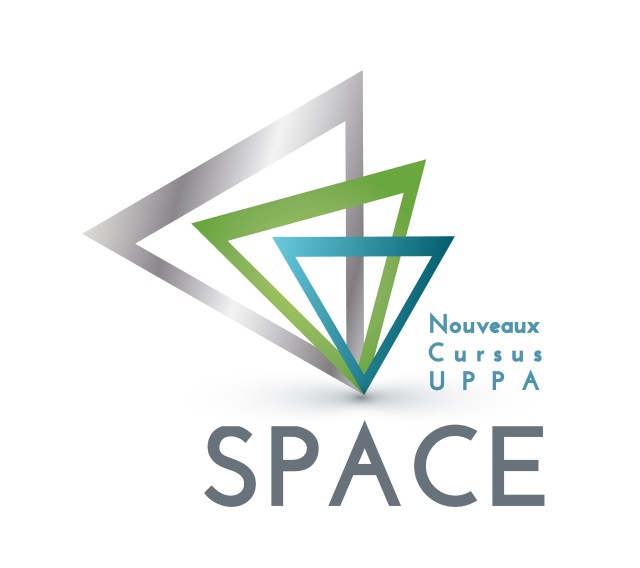The SPACE project"Spécialisation Progressive et Accompagnée des Cursus Etudiants"
15 Feb 2017

SPACE is designed to be consistent with the I-site "E2S" project: it contributes to making the undergraduate level an instrumented skills platform that should enable all students to build their professional project within a multidisciplinary university.
Its ambition is to reduce the number of drop-outs, improve the success rate in bachelor's degrees and increase the number of students going on to master's degrees. More qualitatively, SPACE aims to accentuate the professionalizing and internationalizing character of the training courses, in particular those of bachelor, in order, in particular, to meet the needs of the socio-economic world.
To this end, SPACE is structured around three major actions that constitute an institutional policy.
1 - The development of a new architecture for bachelor's degree courses: these include a gradual specialisation of courses oriented towards the student's project and facilitate the setting up of well-marked gateways both between courses (DUT, LP, L) and between statuses (initial training, continuing education, apprenticeship, etc.).
The specialisation of bachelor's degree courses is based on two aspects: the field of study and the nature of the professional project. The latter determines three 'colourations' within each degree course:
- professionalisation towards research,
- professionalisation towards business, local authorities or the associative world,
- and professionalisation towards teaching.
The bridges, for their part, are based, in particular, on the construction of training by competences and on the introduction of modules preparing for reorientation in the first and second years of DUTs, professional licences and licences.
2 - The implementation of a policy of reception, orientation and individualised support
This policy generalises help in the construction of professional projects, creates a system for the early identification of difficulties in the first semester by associating it with individualised support and develops attractive courses for students with high potential.
3 - The transformation of teaching practices and tools
The transformation of teaching practices and tools is manifested by the dissemination of 'innovative' learning methods (professional speakers, inverted classrooms, project-based learning, e-learning, workshops, internships, English courses), by the adaptation of teaching methods to the 'colourations' of the professional project and by the development of distance learning with its adapted support. This transformation of practices implies a "training of trainers" component for the teaching teams.
The deployment of the project is based on the university's experience in terms of quality (creation of an incentive label "SPACE licence quality", mobilisation of the improvement committees, etc.) and on the increase in the number of services designed to support students and teaching teams.
The system, which was initiated in three pilot bachelor's degrees in 2018/2019, will be extended to all of the university's undergraduate courses after four years. And it is at the end of the ten years that the effects will be fully felt and can be evaluated on all the cohorts of students entering the first year of a licence at UPPA.
Contact for the SPACE project leader: Frédéric Tesson, Vice-President for Education and University Life (frederic.tesson @ univ-pau.fr)